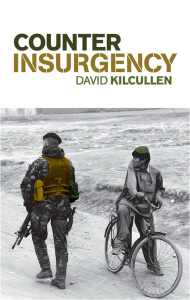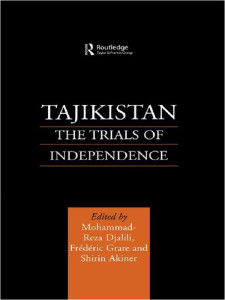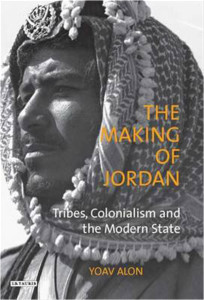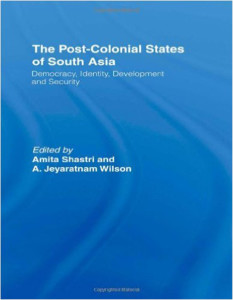

Counterinsurgency
David Kilcullen
Hurst & Co (2010)
Rs7,399
David Kilcullen is one of the world’s foremost experts on guerrilla warfare. His newest book takes us away from the remote, rural guerrilla warfare of Afghanistan, and into the marginalized slums and complex security threats of the world’s coastal cities. Scrutinizing major environmental trends — population growth, coastal urbanization, and increasing digital connectivity — he projects a future of feral cities, urban systems under stress, and increasing overlaps between crime and war, internal and external threats, and the real and virtual worlds.
Kilcullen’s vision of war has been enormously influential, through his service as senior counterinsurgency adviser to General David Petraeus during the Surge in Iraq, as special adviser to the United States Secretary of State, and as a current adviser to the United States, British, Australian and other allied governments. This brief book distills that vision in an easily readable and practical format, through a completely revised and updated edition of his 2006 cult classic The Twenty-Eight Articles, a field practitioner’s guide to the fundamentals of counterinsurgency, which has become the essential handbook for generations of allied military officers and civilian officials in Iraq and Afghanistan. It has also become part of the course of instruction at military academies and counterinsurgency schools worldwide. This modern classic will be an indispensable aid to a new generation of field officers, as well as a concise and accessible primer for students and the general reader.
David Kilcullen is the award-winning author of Accidental Guerrilla (2009) and Out of the Mountains: The Coming Age of the Urban Guerrilla (2013). He is the CEO of Caerus Associates, a strategic research and design firm that specializes in solutions to the world’s hardest problems: economic development, violent conflict, humanitarian assistance, energy shortages and climate change. Before founding Caerus, Dave served 24 years as a soldier, diplomat and policy advisor for the Australian and United States governments.

Killing Mr Lebanon: The Assassination of Rafik Hariri and Its Impact on the Middle East
Nicholas Blanford
I. B. Tauris (2006)
Rs2,958
As sectarian tensions mount in Lebanon following the 2006 summer war, one question threatens to ignite the Middle Eastern tinderbox. Who killed former Lebanese PM Rafik Hariri as he drove along the seafront on that fateful day in 2005? With an international tribunal about to be set up, the issue could drag Syria, Hezbollah, Iran Israel and Hamas in to a regional war. In a much-acclaimed blend of investigative journalism, reportage and story-telling, Nicholas Blanford draws on his unrivalled sources in Lebanon, Syria and elsewhere to piece together the politics, personalities and power-struggles leading up to the assassination. The paperback edition contains new interviews with key players who refused to speak at the time, casting some of the evidence in a dramatic new light. Full of intrigue, shady characters and suspense, Killing Mr Lebanon is the definitive account of how Beirut became once again the flashpoint of the Middle East.
Nicholas Blanford has been a Beirut correspondent for over 10 years. In 1996 he began writing for The Times and The Lebanon Daily Star, breaking several major stories about Israel’s occupation of South Lebanon. An expert on Hizbullah’s military activities, he has spoken at international conferences on the subject, and written about it for the Jane’s Information Group. Since 2001 he has written for The Christian Science Monitor and Time magazine. He reported from Iraq for the Christian Science Monitor from 2003-2004. He lives with his wife and two children in Beirut.

Tajikistan: The Trials of Independence (Central Asia Research Forum)
Edited by Mohammad-Reza Djalili, Shirin Akiner, Frederic Grare
Routledge (1998)
Rs6,577
Since its independence in 1991 Tajikistan has suffered a painful series of political crises followed by a civil war, still continuing, whose repercussions extend far beyond its borders. This work examines the causes of the turmoil, and analyses, through the case of Tajikistan, social and political dynamics at work throughout Central Asia. The book is the work of eleven Central Asian experts from different disciplinary backgrounds, and provides new insight into questions as varied as clan and local identity, the political construction of ethnicity and the role of peacekeeping forces.
Mohammad-Reza Djalili is an honorary professor of International History and Politics at the Graduate Institute of Geneva. He has a doctorate from the Universite Libre in Brussels. He has worked at the University of Paris and University of Tehran. His areas of expertise include Contemporary Iran, Conflicts in the Middle East, the Geopolitics of Central Asia.

The Making of Jordan: Tribes, Colonialism and the Modern State
Yoav Alon
I.B. Tauris (2007)
Rs9,455
At the beginning of the 20th century Jordan, like much of the Middle East, was a loose collection of tribes. By the time of its independence in 1946 it had the most firmly embedded state structures in the Arab world. Drawing on previously untapped sources, Yoav Alon examines how the disparate clan networks of Jordan were integrated into the Hashemite monarchy, with the help of the British colonial administrators. Looking at the growth of key state institutions from a grassroots perspective, Alon shows how they co-opted the structures of tribal society, and produced a distinctive hybrid between modern statehood and tribal confederacy which still characterizes Jordan to this day. Alon’s innovative approach to the origins of modern Jordan provides fresh insights not only into Jordan itself but into colonialism, modernity and the development of the state in the Middle East.
Yoav Alon is a Lecturer in Middle Eastern History at the University of Tel Aviv.

The Post-Colonial States of South Asia: Democracy, Development and Identity
Edited by Amita Shastri and A. Jeyaratnam Wilson
Curzon Press (2001)
Rs7,399
The chapters in this volume analyse issues relating to political governance, national identity, economic development and regional security that have preoccupied the states of South Asia in the fifty years following independence. India has been faced with the challenge of developing effective democratic structures in the world’s most diverse and populous society. It confronts tensions in its efforts to carry out economic reforms in a competitive resource-scarce context, and to maintain its commitment to secularism in the face of the growing influence of Hindu nationalism. The role of the military and of religion have complicated the task of stabilising democratic structures and socio-economic development in Pakistan and Bangladesh. Sri Lanka’s political problems have escalated due to the failures of its leadership, unsuccessful constitutional experiments, and unresolved ethnic differences. The transition of Nepal from a centralised monarchy to a participatory political system has generated stresses in its traditional social relations and group rankings.The essays by an international groups of scholars explore these themes with a view to highlighting the complex processes of political change and development that are underway in the South Asian states.
Amita Shastri is professor of Political Science at the San Francisco State University. She is a comparativist with research and teaching interests in democracy and democratization, ethnicity and nationalism, and political economy of development; especially with reference to South Asia and Sri Lanka. She earned her doctorate in Politics (International Studies) from Jawaharlal Nehru University, New Delhi (1985). She was awarded the Pew Faculty Fellowship in International Affairs, John F. Kennedy School of Government, Harvard University, 1990-91.

